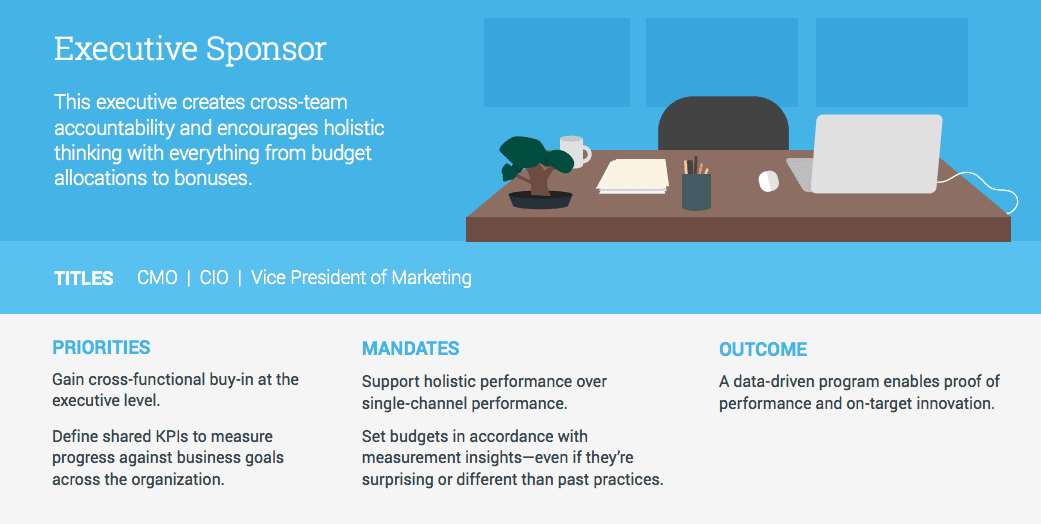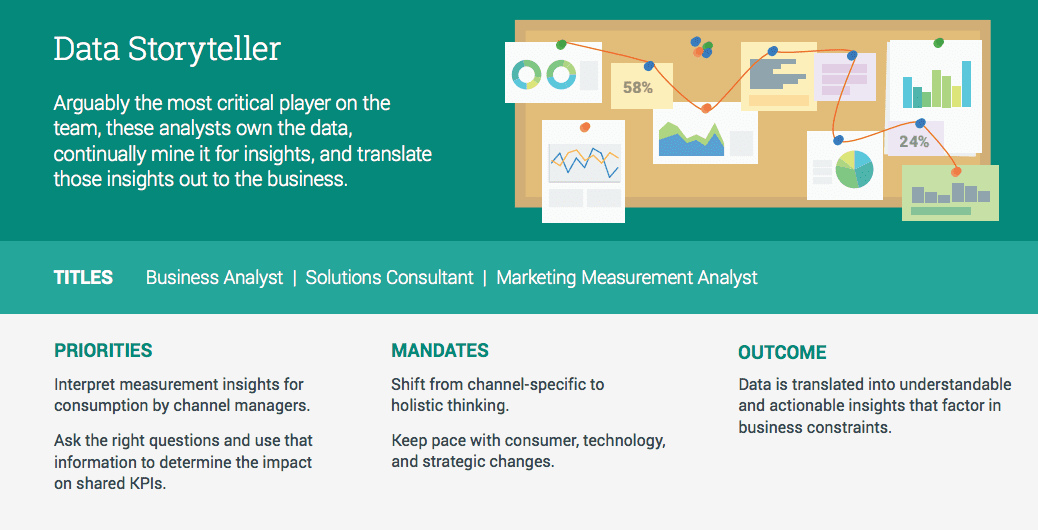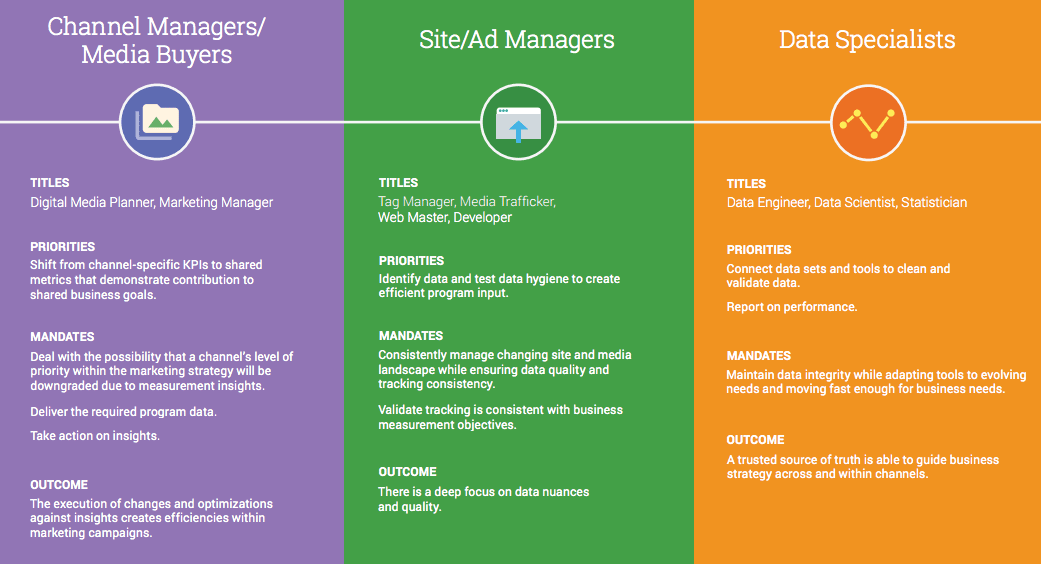How to structure a digital analytics team


What are the ideal roles for an effective data analytics or business intelligence team
Creating teams within a business is a complex task, one that involves a wide range of skills, some of which are hard to quantify. Should you put similar people together in the hope they’ll ‘get each other’, be more productive and ‘get on great’? Or should you mix lots very different people with different skills sets together so they can combine their strengths and cover one another’s weaknesses?
These questions come down to management style and company culture, so we can’t offer any great insights there, as it will be different for everyone and, to some extent, set in stone. But where we can offer insights is in how to structure a data analytics team to get the best results from your employees. This article is based on our summary of this guide guide from Google exploring the ideal Analytics organisation structure or chart and providing top-level job descriptions. We’ve kept ours more informal here, but in our Expert members Digital Marketing Job Descriptions Template they’re more formal!
Why a focus on Data and analytics?
The future of marketing is laser targeted, digitally delivered ad campaigns which are optimised based on vast amounts of data. At Smart Insights we believe that insight-driven marketing is the most effective way to compete since many businesses aren’t set up to measure ROI and get realistic returns given the competition. Data on customers can enable fantastic levels of personalisation. Data from testing which shows what techniques work and what doesn’t. Data on location and time to show what works where and when. All this data needs to be collected, collated, and analysed. Insights need to be teased out of it, and those insights need to be turned into actionable steps. Larger businesses have already begun to build data analytics departments, and your business may need one too if it is to stay ahead of the competition.
Identify, Plan and Structure
The first step to creating an excellent data analytics team is to identify the key people, skillsets and resources needed. Extracting insights from data takes a very different set of skills to data collection, whilst turning those insights into action is a whole different ball game. You’ll need technical people, blue sky thinkers and do-ers a plenty to create the perfect data analytics team.
Once you’ve identified the skills you’ll need then you’ll need to form a plan which assigns responsibilities and realises the challenges that each person will face in their roles. This plan should make sure that all will be challenged but none will be over-stretched. Everyone should have a clear line of accountability to a manager, so you aren’t left with a messy organisational structure that leaves people answering to several different people, which each have different objects. Or worse still, are left with no clear boss at all!
To give you some ideas on how to structure your data analytics team we thought we’d provide you will some of they key roles you will need:
The Big Cheese
Accountability is highly important, and it travels up the teams structure. The buck stops with those at the top, so making sure to have an excellent manager in place at the top that understands the issues is key. Defining their role properly will let you fill this role to a higher standard than if you haven’t planned out exactly what you are looking for.
The right-hand man (or woman)
Having a talented project manager to coordinate activities within the team is key to be able to move forward and just for keeping everything ticking over smoothly. They need to be a fantastic organiser and great at juggling different priorities. They’ll also need to possess a range of soft skills in order to be able to get the best out of everybody.
The thinkers
These are the guys that live with the data itself, day in, day out. They’ll need to be confident with spreadsheets and statistical analysis, and also be able to infer insights that actually mean something to the rest of the marketing department. Those with Numerophobia need not apply.

The supporting cast
No less important than the rest of the team, these are the guys working behind the scenes so the whole department can function. A range of skillsets are needed depending on the exact role, but again being able to work with large volumes of data is a must.

We hope these job briefings have given you some useful ideas for structuring your data analytics team. Expert members can check out our guide to structuring digital marketing teams for more insights.

Download Expert Member resource – Digital marketing team structure
We’re often asked what the ideal digital marketing team looks like. This will naturally depend on the type of business and its size, but there are some common activities that need to be managed. The aim of this template is that you can compare these structures to your current situation to help plan future changes..
Access the Digital marketing team structure
From our sponsors: How to structure a digital analytics team



